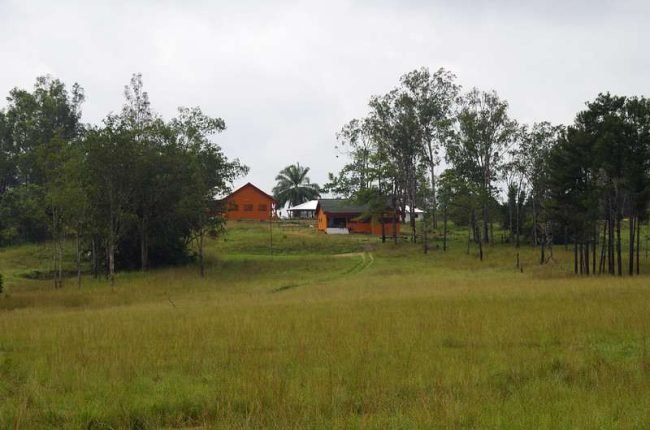Space not available
Reserve this advertising space
Selected ad format
The file format is not recognized
Click here for
upload an ad
Click here to download
an announcement
Here drag and drop or
upload an ad
Send the ad up to 8 days after payment
A link will be sent to you by contact@via-agency.media
Reserved space
Announcement transmitted
Reference
– Towards responsible investment

With the ambition of becoming self-sufficient, Gabon is increasing measures in favor of the agricultural sector, while promoting ecological and modern practices.
Space not available
Reserve this advertising space
Selected ad format
The file format is not recognized
Click here for
upload an ad
Click here to download
an announcement
Here drag and drop or
upload an ad
Send the ad up to 8 days after payment
A link will be sent to you by contact@via-agency.media
Reserved space
Announcement transmitted
Reference
The implementation of the PAT, based on 34 projects corresponding to 12 battles, requires 3,000 billion CFA francs over five years. The government plans to use this amount between 2019 and 2023 because, despite having fertile soil, Gabon imports food products from Cameroon, Congo, South Africa, Brazil, and France. As a result, Gabon's agricultural sector relies on imports for more than 60%, or approximately 800 billion CFA francs (1.22 billion euros) per year. The Gabonese government is thus seeking ways and means to reverse the country's dependence on agricultural imports.
Responsible investment in agriculture and food systems requires the creation of productive assets and the formation of capital, particularly physical and human capital, with a view to contributing to the achievement of food security, nutritional security, and development. Gabonese authorities are working on "import substitution" strategies, which should enable the country to achieve food sovereignty and halve its food import bill by 2025, which amounts to 550 billion FCFA annually. Nearly two years after the creation of high-productivity agricultural zones in Gabon, 600 plots have already been allocated in five localities across the country. Through the Transformation Acceleration Plan (PAT), Gabon aims to achieve food sovereignty, notably by providing five high-productivity zones (ZAP) in Andem, Kango, Bifoun, Abanga, Mboulou, and Idemba. The areas of these secured and registered plots range from 1 to 1,000 hectares, for a total of 75,000 hectares. The government intends to develop the approximately 2 million hectares of cultivable land that remain unallocated in the country. It also seeks to optimize multifunctional and environmentally responsible land use to exploit the country's full agricultural potential.
Space not available
Reserve this advertising space
Selected ad format
The file format is not recognized
Click here for
upload an ad
Click here to download
an announcement
Here drag and drop or
upload an ad
Send the ad up to 8 days after payment
A link will be sent to you by contact@via-agency.media
Reserved space
Announcement transmitted
Reference
The PNAT aims to bring Gabon to cover more than half of its population's consumption needs itself. It is itself part of the Strategic Plan for Emerging Gabon initiated by President Ali Bongo, and the Plan to Accelerate the Transformation of the Gabonese Economy. To support local agricultural production, the Gabonese government adopted, in June 2021, a bill on agricultural orientation, which provides for the creation of a National Chamber of Agriculture (CNA). Through this bill, the government wants to require supermarkets and other agri-food companies to source their supplies from local agricultural producers. As part of the government's strategy to support national production by guaranteeing privileged market access for local products, this text sets out the framework for obliging food sector companies to source at least 50% of their stocks of natural or processed agricultural products locally.
The creation of this National Chamber of Agriculture for agricultural guidance in Gabon comes at a time when the country wants to reduce its dependence on foreign sources of food. Similarly, built on an area of 10,600 m2, the Eboro dry port will house administrative buildings for the Gabonese Food Security Agency (Agasa), the Central Office for the Fight against Drugs (OCLAD), the Ministry of Commerce, and Customs. All these services in one will issue certificates that will allow goods to enter the Gabonese Republic while guaranteeing the sanitary quality of imported and exported products. A weighbridge will allow the tonnage of goods to be checked and the regulatory taxes in force to be paid. The dry port construction site will be completed in September 2022.
GABON DOUBLES ITS PALM OIL PRODUCTION
The crude palm oil sector consolidated its performance at the end of the 2021 financial year. According to data from the Ministry of Economy, Gabon produced 107,336 tonnes of palm oil in 2021. This represents a production increase of 52.6% compared to 2020. For 2022, Gabon projects a production of 112,186 tonnes of palm oil, an increase compared to 2021, according to data from the Ministry of Economy. This projection is based on the acceleration of the development of new high-productivity agricultural areas and the implementation of the Agricultural and Rural Development Project (Pdar-Fida).
Space not available
Reserve this advertising space
Selected ad format
The file format is not recognized
Click here for
upload an ad
Click here to download
an announcement
Here drag and drop or
upload an ad
Send the ad up to 8 days after payment
A link will be sent to you by contact@via-agency.media
Reserved space
Announcement transmitted
Reference







